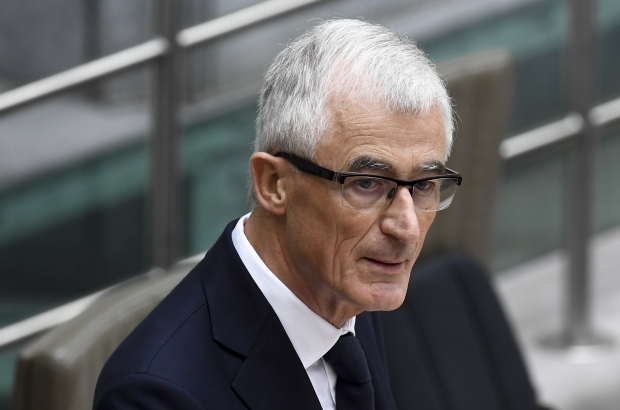- Daily & Weekly newsletters
- Buy & download The Bulletin
- Comment on our articles
Flemish minister-president moves to shake 'wait and see' attitude to Brexit
When the Belgian-British writer Patrick McGuinness was asked recently to give a view about how Brexit appears from this side of the Channel, he singled out the apparent lack of progress in the UK. “Things are no further advanced than the day after the referendum,” he wrote in the London Review of Books. “I found more preparation for Brexit on Zeebrugge port’s website than I’ve seen, read or heard from British politicians or (most of) the media.”
Zeebrugge is also an example for the government of Flanders, which chose the port this month to launch a series of Brexit seminars for small and medium-sized enterprises (SMEs). Klaar for de Brexit? (Ready for Brexit?) is organised together with business groups Voka and Unizo, the first seminar early last week heard from both the minister-president of Flanders, Geert Bourgeois (pictured), and federal finance minister Alexander De Croo.
“We’ve been actively participating in Brexit seminars all over Flanders in the past six months and noticed that many SMEs are still taking a wait-and-see attitude,” said Bourgeois, about the reason for the present push. “As a no-deal Brexit is a realistic possibility, and the day is approaching rapidly, we are stepping up our efforts to encourage SMEs to take measures to prepare for a no-deal Brexit.”
After the kick-off meeting in Zeebrugge, seminars are to be held in every Flemish province over the coming weeks. Each seminar will run through the likely Brexit scenarios and offer tips to help SMEs prepare.
Flanders Investment & Trade and the Agency for Innovation and Enterprise will explain how they can help companies deal with the impact of Brexit. A range of services are available, as well as subsidies in some cases.
Then the Belgian customs authorities will explain the customs facilitation procedures that have been put in place and the customs permits available to help to ease the flow of goods. Other speakers will cover topics such as taxes, the legal aspects of Brexit and food security.
While the aim is for the seminars to address a general businesses audience, some will also have sessions on specific sectors, according to local needs. This will be the case for certain sectors that are expected to find a hard Brexit especially challenging.
“There are several sectors that are particularly vulnerable, namely textiles, food and drink, chemicals and pharma, the automotive sector and aerospace,” said Bourgeois. “All these sectors have a relatively higher dependency on the UK as an export market. For some, more than 30% of their total exports go to the UK. At the same time, most of these sectors will be subject to high import duties in the case of a no-deal Brexit.”
Even if the UK manages to agree a softer Brexit, Flemish companies will still need to take steps to adapt. “No matter the scenario, there will always be negative consequences following the UK leaving the EU,” Bourgeois went on. “With the UK leaving the European internal market and the European customs union, there will be new barriers to trade, including customs formalities, border checks, certificates, etc. For companies who have never exported outside the EU, this will prove a challenge.”
With each seminar running for just half a day, this can only be the beginning of the process. “We want to provide the companies with enough ideas to get started on how they can prepare for Brexit,” Bourgeois explained. “And of course, it is up to the companies to do the work. The government cannot do that for them.”
Photo: Belga


















